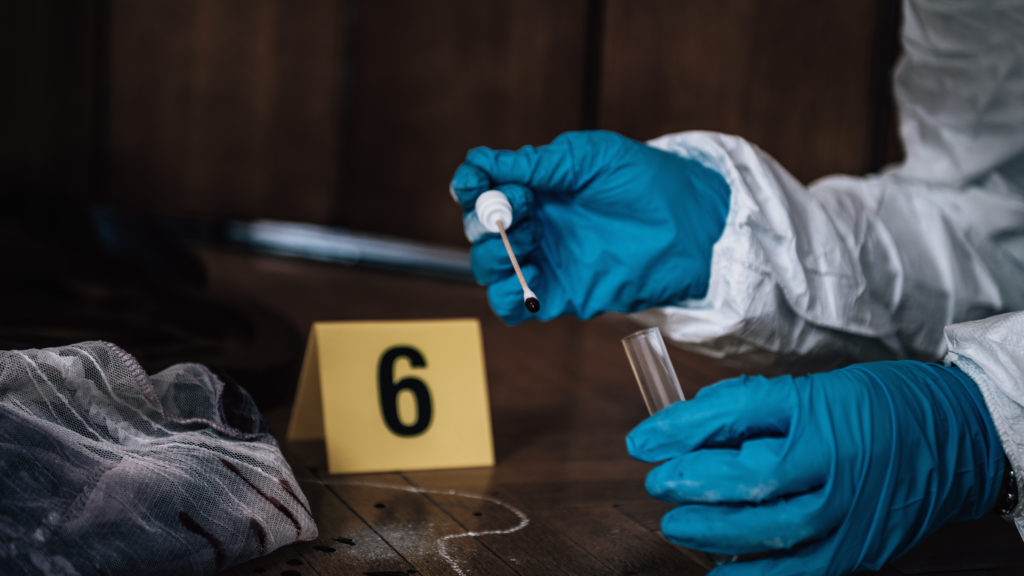Forensic science courses combine scientific analytical skills in chemistry and biology with an in-depth knowledge of crime scene management.
According to the U.S. National Institute of Justice, ‘Forensic Science is a highly interdisciplinary subject using notions of Natural Sciences, like Chemistry and Biology, as well as Engineering and Computer Science to assist law authorities with solving criminal cases. Forensic Scientists help authorities through the analysis of evidence collected from crime scenes. The results are then used to identify a suspect or determine if they committed a crime or not.’
What will I learn?
During the course of the study of forensic science, students will carry out extensive laboratory-based research projects. These projects will be in areas that are in direct relevance to forensic investigation.
The student will learn to use sophisticated analytical instrumentation and learn skills such as:
- Project management
- Independent learning
- Planning
- Time management
- Report writing
- Environmental forensics
- Chemical analysis
- Chemistry
- Immunodiagnostics
- Molecular biology/DNA analysis
- Advanced crime scene management
Students of forensic science will also explore the science behind a wide range of criminal activities such as:
- Murder investigation
- Contraband goods
- Laundered diesel
- Gunshot residue
- Illegal drugs
- Forgeries
- Electronic crimes.
What can I do?
A graduate of forensic science also has other study options open to them such as:
- Forensic Psychology – helps students learn how to use psychological principles and methods to help judges, lawyers, or police investigators better understand a criminal case
- Cyber Forensics – students discover how to use investigation techniques and specialised tools to collect and store evidence from a computing device
- Forensic Chemistry – teaches students how to use chemical research to identify unknown substances and materials discovered at a crime scene
- Forensic Biology – students learn how to collect, analyse, and then use the results to verify if biological evidence links a victim or a suspect to a certain location or crime
- Forensic Accounting – trains students how to use accounting knowledge to discover possible fraud and analyse information related to an organisation or an individual’s finance and transactions
Job options
Jobs directly related to your degree include:
- Analytical chemist
- Biomedical scientist
- Crime scene investigator
- Detective
- Forensic scientist
- Scientific laboratory technician
- Toxicologist
- Jobs where your degree would be useful include:
- Border force officer
- Forensic computer analyst
- Further education teacher
- Higher education lecturer
- Police officer
- Science writer
- Secondary school teacher
There are a number of different forensic science courses available at various levels across the country.
Find forensic science courses near you on Courses.ie












Comments